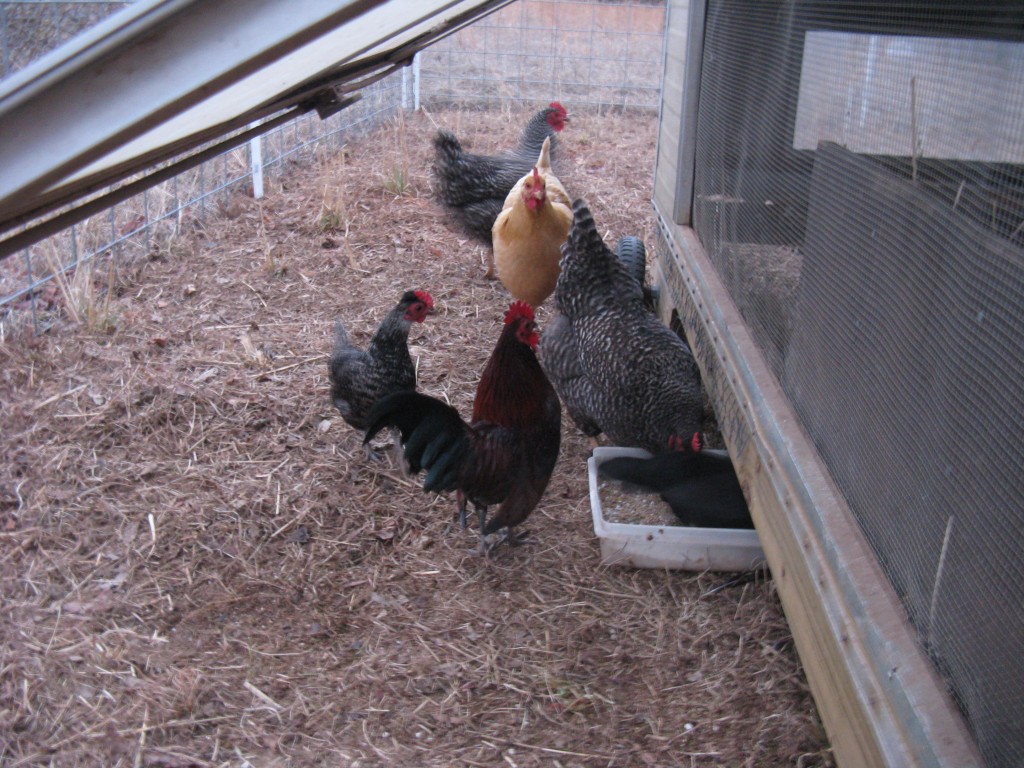A huge problem in the world today is the constant erosion of our soil. Over many years, this process leads to nutrient deficient and dead soils that grow less nutritous plants every year. If we follow the food chain up, any livestock that eat these plants will suffer nutrient deficiencies, and any meat, eggs, or dairy that we obtain from these animals will likewise not supply a full spectrum of minerals and nutrients necessary for healthy life.
One way to combat this unhealthy cycle, and remineralize the land, our livestock, and our food, is through the use of supplemental minerals. By feeding a full spectrum of minerals to our animals, in addition to high quality feed, not only do we improve the quality of their health, meat, and eggs, but we also improve the quality of their manure. By cycling these nutrients and minerals through livestock, they become bio-available to plants, which readily soak them up and perform better than ever. If we continue this cycle, and either mulch, compost, or feed these plants back to our livestock, we can rapidly increase the fertility of the land, and remineralize eroded and damaged landscapes, all while enjoying a bonus of the healthiest plant and animal products imaginable.
Geoff Lawton is where I first heard of this remineralization process, and his supplemental mineral recipe is great. This recipe is enough to feed to 1 dairy cow every day at milking or 10 chickens once a week.
- Start by boiling up a cup or two of clean water.
- Add 1 tsp. of copper sulfate. This worms the animals, but is a toxic compound that can poison them.
- So, to neutralize the dangers of the copper sulfate, but still get the worming effect, add 1 tbsp. of dolomite lime.
- To balance out the pH add 1 tbsp. of flowers of sulfur, an acidifying element to balance the alkaline effect of the lime.
- Next, add 1 tbsp. of 2 types of rock dust minerals. For example, 1 tbsp. of greensand and 1 tbsp. of azomite.
- Add 2 tbsp. of kelp, a dried mineral rich ocean product. This contains all of the minerals of the land (which all erode out into the ocean) in a slightly different form and ratio.
- 1/2 cup of apple cider vinegar. This adds more nutrition, and helps with the digestion of some of the minerals.
- 3 tbsp. molasses. An extra boost of iron, and a nice sweet taste makes this concoction a delicious treat for all livestock.
This mix is stirred together, added to a bucket of chopped forage, and fed to the animals. Geoff credits the bones of this recipe to Pat Coleby, an Australian author who writes natural animal care books for farmers and pet owners. Pat’s take is that animals do not have health problems or diseases, but rather are suffering from a nutrient deficiency, and that it is up to the farmer or pet owner to supply the correct nutrients and minerals. This treats the cause of the problem as opposed to the symptoms.
There is probably some wisdom there when it comes to our own health as well. Regardless, the first step is to remineralize the soil, and there isn’t a more efficient way than feeding a mineral supplement through your livestock and having them pre-process it for you into a plant ready state, creating an oasis of fertility and nutrient density in your backyard.
*Don’t forget to pre-order your Heritage Thanksgiving Turkey!

December 15, 2015 at 9:44 am
A whole teaspoon of copper sulfate per day is way too much for a dairy cow. Pat Coleby’s mix contains 50 pounds of dolomite for every 8 pounds of copper sulfate (as well as 8 lb of sulfur powder and 8 lb of seaweed). In her book Cattle Care, she recommends making up the mix and then adding 1 tablespoon of this to a cow’s daily ration, then giving it free choice as well for a cow to take what she needs.
January 27, 2016 at 4:50 pm
Thanks for the info! ;)